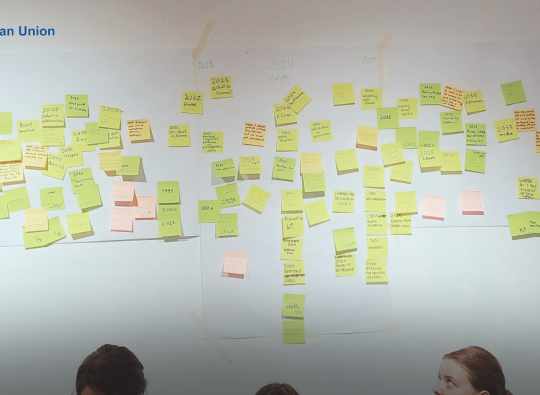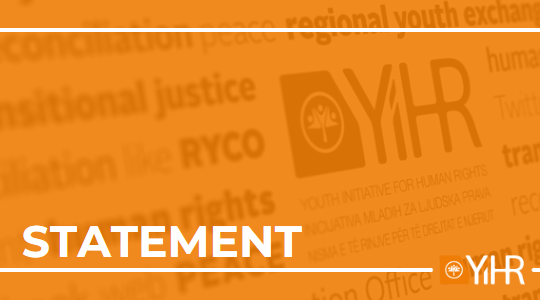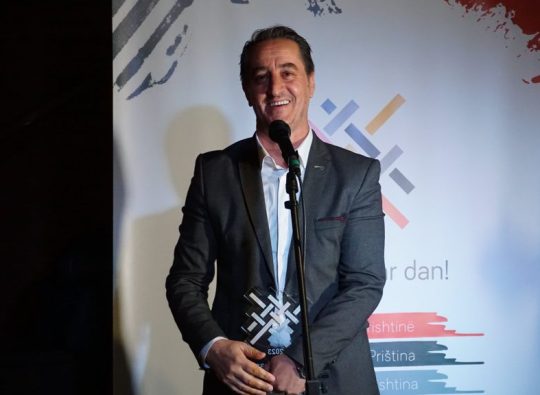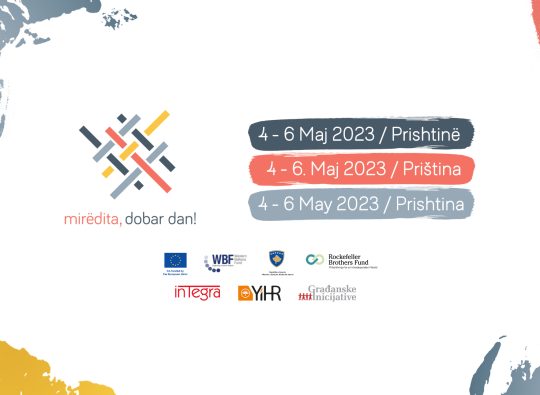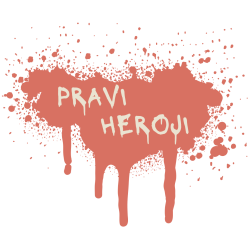It is so important for young people to travel; exchange programs, getting to know each other, personal and social acquaintances are extremely important. New bridges are incredibly needed, especially for new generations who have grown up on new waves of hatred.
It is precisely because of this that a persecution against the one and only event that represents a natural bridge between the two spaces, two peoples, a bridge between cultures, is unreasonable… We are witnessing the sacrifice of a better reality, a better perspective when it comes to relations in the region, for the sake of populist ideas and the spread of hate speech among other things. The newly established tradition is being destroyed, because this is the tenth anniversary of the festival “Mirëdita, dobar dan!”, with several hundred participants and several thousand in audience and, I am sure of it, several dozen of those who look kindly on the efforts of the organizers.
There are some topics, occurences, events and anniversaries that are always convenient to prove a hardline political stance, strengthen the right-wing political mass and raise tensions. In this part of the year, they coincide with a sharp rise in summer temperatures. They begin at the end of June with the commemoration of Vidovan/St. Vitus Day, continue in mid-July, with an event in Potocari on the occasion of the anniversary of the Srebrenica genocide and end in early August, when the operation “Storm” and the persecution of Serbs from Croatia are marked.
This year, everything is further spiced up by the atmosphere regarding the voting in favour of the UN Resolution on the Srebrenica Genocide, which has given the wind in the sails in the region to many of those who interpret it as it best suits them for their daily political gains. The traditional event “Mirëdita, dobar dan!”, scheduled for the end of June, proved to be the perfect target, or should I say a punching bag and a way to act out frustrations to those who could hardly wait for the announcement of this multi-day event, wanting to instrumentalize it in accordance with their political agenda.
The organizers smartly skipped June 28, and that’s where the debate should have ended. Unfortunately, this is not enough for some who want to ban and expel this festival. That is why I am writing this text, as a reminder of the steps we have made so far only to allow going backwards because of a few hotheads and daily political performances.
Nine years ago, the Minister of Culture and Information Ivan Tasovac opened the second “Mirëdita, dobar dan” festival in Belgrade saying that “without cultural cooperation, it is impossible to imagine reconciliation of a deeply divided society”. This festival was opened in the hall of the former Trade Union Hall, displaying an image and quotation of the famous actor Bekim Fehmiu, whose book “Brilliand and Terrifying” was published more than two decades ago by Samizdat B92.
https://kossev.info/tasovac-u-beogradu-otvorio-festival-mirdita-dobar-dan/
This autumn, it will be ten years since the Albanian Prime Minister Edi Rama had his first official visit to Belgrade, after almost seven decades since Enver Hoxha’s previous visit. That year, he personally promoted his book “Sacrifice” in Belgrade, published by Samizdat B92.
https://www.slobodnaevropa.org/a/26683389.html https://www.blic.rs/vesti/politika/promocija-knjige-edija-rame-13-oktobra-u-beogradu/hhevncs
At the end of 2013, former Prime Minister and current Minister of the Interior, Ivica Dacic, personally visited the exhibition at the Belgrade DKC Gallery entitled “Bogujevci/Visual History” about the harrowing testimonies of two sisters and a brother of Bogujevci family about the crime committed by the members of the Scorpions unit in Podujevo in 1999. Then, he personally met with the survivors of this massacre.
In 2016, I personally read the message that the then prime ministers Aleksandar Vucic and Edi Rama sent to the participants of the festival:
“We want to pay tribute to the ideas of the great artist and humanist Bekim Fehmiu, on the occasion of the 80th anniversary of his birth. Bekim has left an indelible mark, both among Albanians and Serbs…
His life, the art through which he lived, have shown us that we can understand each other and learn from each other, that we are connected and that together we should build a prosperous future for future generations.
Bekim Fehmiu is a witness that whatever paths in life we choose in order to connect our two peoples they will always be beneficial, both for one and for the other. Both for Albanians and Serbs.”
What happened, so now some would like to turn back the clock in an attempt to take us back to the past? The ban of “Mirëdita, dobar dan!” is a dangerous, regressive and unacceptable idea. It is naive to believe that it will end there, and that is why it should be opposed. And that is why I raise my voice and protest in this way.
I am sure that even if “Mirëdita, dobar dan” is prevented violently, or by the decision of the competent authorities, that even with this unacceptable act, this event will gain importance. The characters of politics involved in it will also be exposed. Now that the right-wing, which has protested and obstructed the participants of this event for years, is in power now. It will be interesting to see who will be in that role now.
Mirëdita – Dobar dan, the festival, is inspired by the life, work and views of Bekim Fehmiu, Albanian actor who lived in Belgrade, world-famous and respected. His life represents a symbol of a common past with all its challenges, achievements and misunderstandings, as defined by Petrit Imami in the book “Serbs and Albanians through Centuries”.
Bekim stopped performing and speaking publicly in 1987 out of protest against hate speech and politics that led to destruction.
He spoke publicly for the first time at a debate during a visit of young people from Kosovo to Belgrade, in 1997 or 1998.
As a publisher, I published two of the most interesting books in my publishing life׃ “Radiant and Terrible”, Bekim’s memoirs.
A few days ago, on June 15, it was 14 years since Bekim’s decision to end his earthly life.
He continued, of course, to live through his work, but also through the festival “Mirëdita, Dobar dan”, which, with its fate, seems to repeat the life’s ups and downs that Bekim Fehmiu went through.
We have to defemd “Mirëdita” also because we could not protect Bekim, humanity and excellence.
Rade SERBEDZIJA – A SONG FOR BEKIM (Text: Miljenko Jergovic) | Bistrooki (balasevic.in.rs)
Author: Veran Matic

